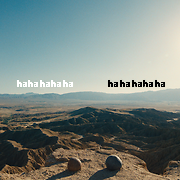|
shadowrun lookin mf
|
|
|
|
|

|
| # ? Jun 10, 2024 12:12 |
|
the dice are being thrown at the viewer. it's actually a primitive attempt at creating a 3D holofoil image.
|
|
|
|
Johnny Three Dices
|
|
|
|
|
(yes I know "dice" is already plural but it doesn't sound right otherwise)
|
|
|
|
|
the plural of dice is deece, as in "those are pretty deece" or "DMs are deece nuts"
|
|
|
indigi posted:3D holofoil image. indigi posted:the plural of dice is deece, as in "those are pretty deece" or "DMs are deece nuts" Johnny 3deece, it all fits
|
|
|
|
|
in apocolocyntosis emperor claudius' soul is sentenced in tartarus to forever load dice into a dice box that has no bottom and chase after them, never getting to make his roll.
|
|
|
|
Was there any real difference between Flavius Aetius and Ricimer aside from their ethnicity? Seems like the whole nefarious barbarian general trope of late antiquity is more of an institutional problem than anything to do with the migration.
|
|
|
|
Sherbert Hoover posted:Was there any real difference between Flavius Aetius and Ricimer aside from their ethnicity? Seems like the whole nefarious barbarian general trope of late antiquity is more of an institutional problem than anything to do with the migration.
|
|
|
|
A Buttery Pastry posted:Only one of them ended up having a huge meltdown in the Forum.
|
|
|
|
eyyyyyyyyyy
|
|
|
|
A Buttery Pastry posted:Only one of them ended up having a huge meltdown in the Forum. 
|
|
|
|
A Buttery Pastry posted:Only one of them ended up having a huge meltdown in the Forum. Nice
|
|
|
|
A Buttery Pastry posted:Only one of them ended up having a huge meltdown in the Forum.
|
|
|
|
A Buttery Pastry posted:Only one of them ended up having a huge meltdown in the Forum.
|
|
|
|

|
|
|
|
A Buttery Pastry posted:Only one of them ended up having a huge meltdown in the Forum. lmao
|
|
|
|
Azathoth posted:for real, is that part of the etymology on snot? because split pea soup looks like snot from when you're really sick and is about as appetizing to consume split pea soup is good. yellow and green: both good. it is a sign of culinary weakness to believe otherwise.
|
|
|
|
 https://www.nature.com/articles/s41586-022-05160-8 quote:Surgical amputation of a limb 31,000 years ago in Borneo
|
|
|
|
that's crazy
|
|
|
|

|
|
|
|
He was obviously trying to create a love potion/perfume by distilling his manly essence.
|
|
|
|
I was reading about the trial and execution of Socrates and I got the impression that he deserved it, which is very different from what I was taught in school. He collaborated with a dictatorship that murdered a lot of Athenians, and in his defence he claimed that he didn't resist them but he didn't actively help them. There was an amnesty for anyone who committed crimes during the tyranny, so he was executed on a pretext of corrupting the youth, but really it was vengeance against the Spartan tyranny. Are there other historians who have this view on him, or am I way off base? They knew about rocks that emit light when crushed because they have phosphorus in them. A chemist would have known about it, but probably not the average person. Thomas Browne wrote about it in Pseudodoxia Epidemica, which is a fun 17th-century book about applying the scientific method to a lot of contemporary beliefs.
|
|
|
|
we knew piss blew poo poo up for a thousand years, though that was the nitrates
|
|
|
|
He was an alchemist, he was trying make precious metals. It's really not more mysterious than that.
|
|
|
|
|
gold is stored in the balls
|
|
|
|
|
This is incredible and I'm so amazed that they could tell it was an amputation during life and not post mortem. I mean I know how they do it but its still incredible to me. Also given the extreme paucity of paleolithic remains, there's an implication here that this wasn't a one-off.
|
|
|
|
Tulip posted:This is incredible and I'm so amazed that they could tell it was an amputation during life and not post mortem. I mean I know how they do it but its still incredible to me. Also given the extreme paucity of paleolithic remains, there's an implication here that this wasn't a one-off. i am not a medical professional, but if the amputation was done while the person was living and they survived for years afterwards i'd expect that you could detect signs of the wound healing, which obviously wouldn't be the case if it happened post-mortem
|
|
|
|
they implied it was done when the kid was very young and that may help mitigate something that'd send an adult into shock. given the civil war butcher tents i could see amputations being successful more often than not. it's roman trepanning that really freaks me out
|
|
|
|
They had incredibly sharp tools, sharper than modern scalpels and took apart animals quite often so im not surprised they had an understanding of anatomy and butchery
|
|
|
|
Socrates: right or wrong?quote:Socrates on the Forgetfulness that Comes with Writing
|
|
|
|
mawarannahr posted:Socrates: right or wrong?
|
|
|
|
Socrates foresaw people reading Wikipedia and professing subject matter expertise
|
|
|
|
you know id only ever heard of this discourse because of the whole did u know some greeks hated writing this is why people complaining about new things are always wrong talking point but yeah hes clearly talking about the dangers of passive discourse versus active discourse it has nothing to do with writing being a newfangled invention
|
|
|
|
socrates more like succrates amirite?
|
|
|
|
 dudes rock
|
|
|
|
compensating for something?
|
|
|
|
Chamale posted:I was reading about the trial and execution of Socrates and I got the impression that he deserved it, which is very different from what I was taught in school. He collaborated with a dictatorship that murdered a lot of Athenians, and in his defence he claimed that he didn't resist them but he didn't actively help them. There was an amnesty for anyone who committed crimes during the tyranny, so he was executed on a pretext of corrupting the youth, but really it was vengeance against the Spartan tyranny. Are there other historians who have this view on him, or am I way off base? there is as much historical evidence for the existence of socrates as for the existence of jesus
|
|
|
|
mawarannahr posted:Socrates: right or wrong? I think he's sort of right in that people won't bother committing certain things to memory if they know they can just look it up, but I don't think that leads to a general "forgetfulness" or lack of understanding or whatever so much as just a shifting of how and where we "remember" different types of information. Instead of having to commit all the little fine details of something to memory, we can just remember the broader strokes and remember where to look up the precise figures. Like I could tell you some general things about, idk, The Odyssey, but I couldn't recite it from memory, because all I need to know for the life I live is those broad ideas. And if I ever do need more precise information I know where to find it easily, although even that knowledge in a lot of cases can be reduced down to just "google it". And the bit about writing enabling people to "hear many things without being properly taught" is I think especially wrong. It's very easy to memorize something without understanding it, as Socrates himself shows in some other dialogues!
|
|
|
|

|
| # ? Jun 10, 2024 12:12 |
|
Eldoop posted:I think he's sort of right in that people won't bother committing certain things to memory if they know they can just look it up, but I don't think that leads to a general "forgetfulness" or lack of understanding or whatever so much as just a shifting of how and where we "remember" different types of information. Instead of having to commit all the little fine details of something to memory, we can just remember the broader strokes and remember where to look up the precise figures. Like I could tell you some general things about, idk, The Odyssey, but I couldn't recite it from memory, because all I need to know for the life I live is those broad ideas. And if I ever do need more precise information I know where to find it easily, although even that knowledge in a lot of cases can be reduced down to just "google it". And the bit about writing enabling people to "hear many things without being properly taught" is I think especially wrong. It's very easy to memorize something without understanding it, as Socrates himself shows in some other dialogues! what slips through the cracks in terms of what can be expressed by words and what can’t? your post reminded me of research into how Google Maps is ruining our brains https://www.ncbi.nlm.nih.gov/pmc/articles/PMC7156656/ quote:
this isn’t the only or best study but just an example. I know people who i have seen struggle to walk or drive home in a city they’ve lived in for years when they can’t use their maps app. I think this could have done analogies in the matter of writing in general.
|
|
|














































